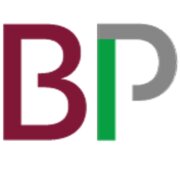Best Public-Private Partnerships (PPP) Lawyers in Italy
Share your needs with us, get contacted by law firms.
Free. Takes 2 min.
Or refine your search by selecting a city:
List of the best lawyers in Italy
About Public-Private Partnerships (PPP) Law in Italy
Public-Private Partnerships, often referred to as PPPs, are collaborative agreements between public authorities and private entities aiming to deliver public services or infrastructure. In Italy, PPPs are commonly used for projects such as highways, hospitals, schools and energy facilities, enabling the pooling of resources, expertise and capital from both sectors. The legal framework for PPPs in Italy has evolved over time, aligning with European Union laws and encouraging modernization of public infrastructure by leveraging private investment and innovation.
Why You May Need a Lawyer
Navigating the legal complexities of PPPs in Italy can be challenging. Here are some common situations where legal assistance is essential:
- Drafting or reviewing partnership agreements and contracts
- Participating in public tenders or bidding processes for PPP projects
- Ensuring compliance with Italian and European laws and regulations
- Handling negotiations between public bodies and private partners
- Addressing disputes or contractual breaches during the PPP lifecycle
- Advising on financing, permits and administrative authorizations required for PPP projects
- Assessing and managing risk throughout the project
- Ensuring proper completion, termination or transfer of the project at the end of the contractual period
Engaging a lawyer with experience in PPPs in Italy can help protect your interests, avoid costly mistakes and ensure that all legal obligations are met.
Local Laws Overview
The legal framework for PPPs in Italy is primarily governed by the Code of Public Contracts (Legislative Decree No. 50/2016), which incorporates relevant European directives on public procurement and concessions. Key aspects of local laws include:
- Definition of PPP models: Italian law recognizes several PPP forms such as project finance, concession contracts, and leasing of public works.
- Transparency and competition: All PPP processes must guarantee transparency, competition and non-discrimination in line with EU requirements.
- Public tendering: PPP contracts are generally awarded through public tenders with specific rules for selecting private partners.
- Risk allocation: Effective risk sharing between public and private partners is a core legislative requirement.
- Financing: The law allows for various types of project financing, including access to European funds and bank loans.
- Supervision and monitoring: Public authorities are responsible for overseeing the progress and performance of PPP projects throughout their lifecycle.
Understanding these laws is essential for both public authorities and private companies considering involvement in a PPP in Italy.
Frequently Asked Questions
What is a Public-Private Partnership (PPP) in Italy?
A PPP in Italy is a collaboration between a government authority and a private company, typically for the delivery, management or financing of public services or infrastructure.
Who can participate in PPPs in Italy?
Both domestic and international private entities can participate in PPP projects, subject to meeting qualification and legal requirements set by Italian authorities.
How are PPP projects awarded in Italy?
Most PPP projects are awarded through public tenders, which ensure transparency, competition and fairness in the selection of private partners.
What are the main advantages of PPPs for public authorities?
PPPs allow public authorities to access private capital, share risks and leverage specialized private sector expertise, often leading to better project efficiency and outcomes.
What types of projects are suitable for PPPs in Italy?
Typical PPP projects include roads, bridges, hospitals, energy generation facilities, public transport and other essential infrastructure or services.
What are the main risks involved in PPPs?
Risks include financial challenges, regulatory changes, project delays, unexpected costs, and potential disputes between partners. Effective risk allocation is addressed in the contract.
How is the performance of PPP projects monitored?
Public authorities supervise PPP projects by monitoring contractual compliance, project milestones and the quality of public service delivery throughout the contract term.
What is project finance in the context of PPP?
Project finance involves securing funds for a PPP project based on the project's future cash flows, often without recourse to the sponsors' balance sheets.
Can PPP contracts be terminated early in Italy?
Yes, PPP contracts can be terminated before their scheduled end under certain conditions such as significant breaches, mutual agreement or public interest considerations, following due legal processes.
When should I involve a lawyer for a PPP project in Italy?
It is advisable to consult a lawyer as early as possible, ideally before entering the bidding process or signing any agreements, to ensure your interests are protected and to meet all legal requirements.
Additional Resources
If you require more information or support regarding PPPs in Italy, consider reaching out to the following organizations and resources:
- Italian Ministry of Infrastructure and Transport - provides policy guidance and regulatory updates on public contracts and PPPs
- National Anti-Corruption Authority (ANAC) - supervises public procurement, integrity and transparency
- European PPP Expertise Centre (EPEC) - offers best practices and resources on PPP regulations and implementation in Italy and throughout the EU
- Chambers of Commerce - can provide local legal contacts and information on public contracts
- Specialized law firms with expertise in PPP law and public procurement in Italy
Additionally, you can consult local government bodies and relevant professional associations for sector-specific guidance.
Next Steps
If you are considering entering a Public-Private Partnership in Italy or require legal advice related to an ongoing PPP project, take the following steps:
- Identify and clearly define the objectives and scope of your potential PPP project
- Research and gather information about existing legal and procedural requirements for PPPs in your sector and region
- Consult a qualified lawyer or legal advisor specialized in Italian PPP and public procurement law
- Prepare all relevant documentation and background information before your initial legal consultation
- Engage in early legal review of any contracts, tenders or project proposals to minimize risks
- Maintain clear communication with all stakeholders throughout the project lifecycle
Expert legal guidance can be invaluable for helping you navigate complex regulations and ensuring the long-term success of your PPP project in Italy.
Lawzana helps you find the best lawyers and law firms in Italy through a curated and pre-screened list of qualified legal professionals. Our platform offers rankings and detailed profiles of attorneys and law firms, allowing you to compare based on practice areas, including Public-Private Partnerships (PPP), experience, and client feedback.
Each profile includes a description of the firm's areas of practice, client reviews, team members and partners, year of establishment, spoken languages, office locations, contact information, social media presence, and any published articles or resources. Most firms on our platform speak English and are experienced in both local and international legal matters.
Get a quote from top-rated law firms in Italy — quickly, securely, and without unnecessary hassle.
Disclaimer:
The information provided on this page is for general informational purposes only and does not constitute legal advice. While we strive to ensure the accuracy and relevance of the content, legal information may change over time, and interpretations of the law can vary. You should always consult with a qualified legal professional for advice specific to your situation.
We disclaim all liability for actions taken or not taken based on the content of this page. If you believe any information is incorrect or outdated, please contact us, and we will review and update it where appropriate.
Browse public-private partnerships (ppp) law firms by city in Italy
Refine your search by selecting a city.















